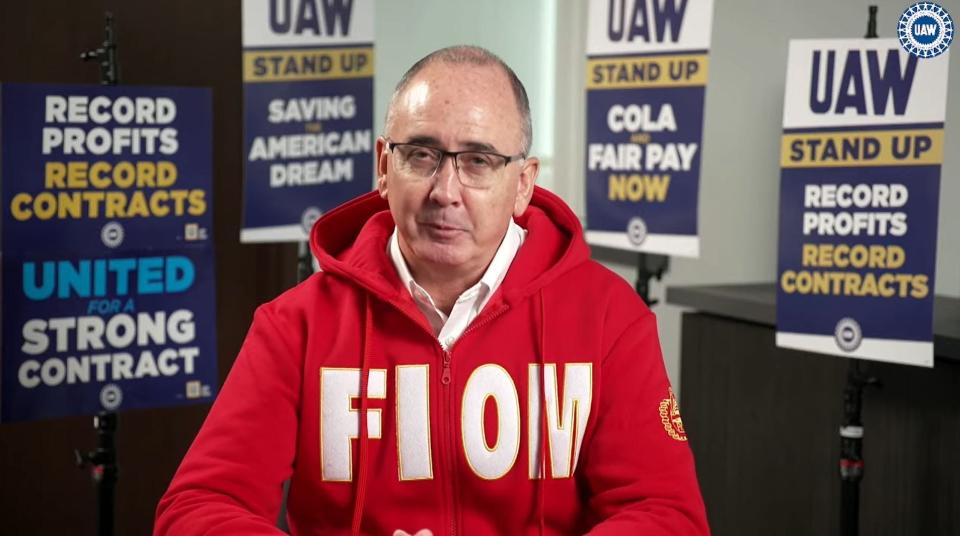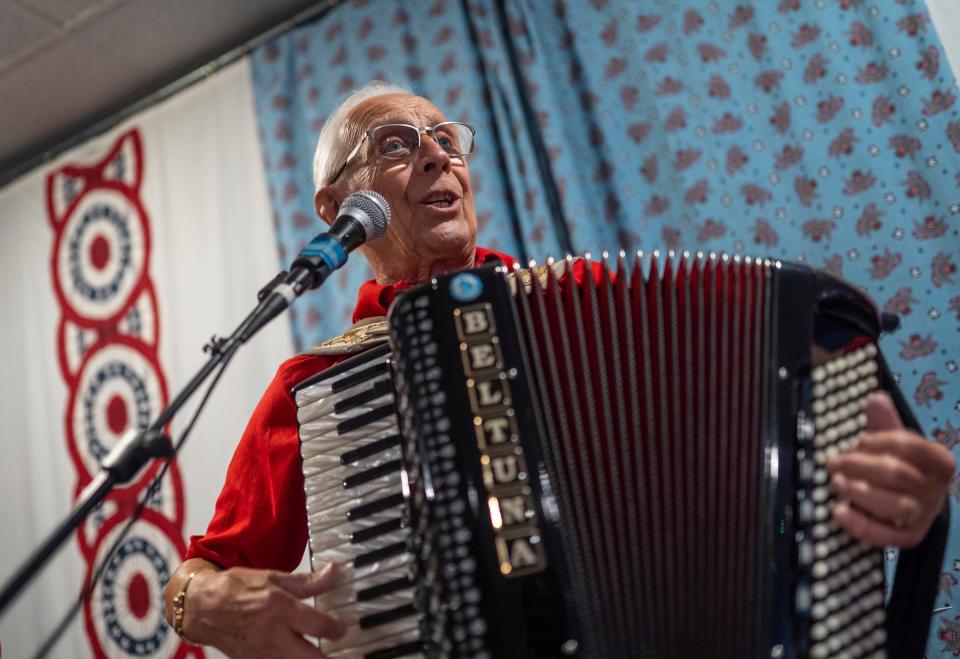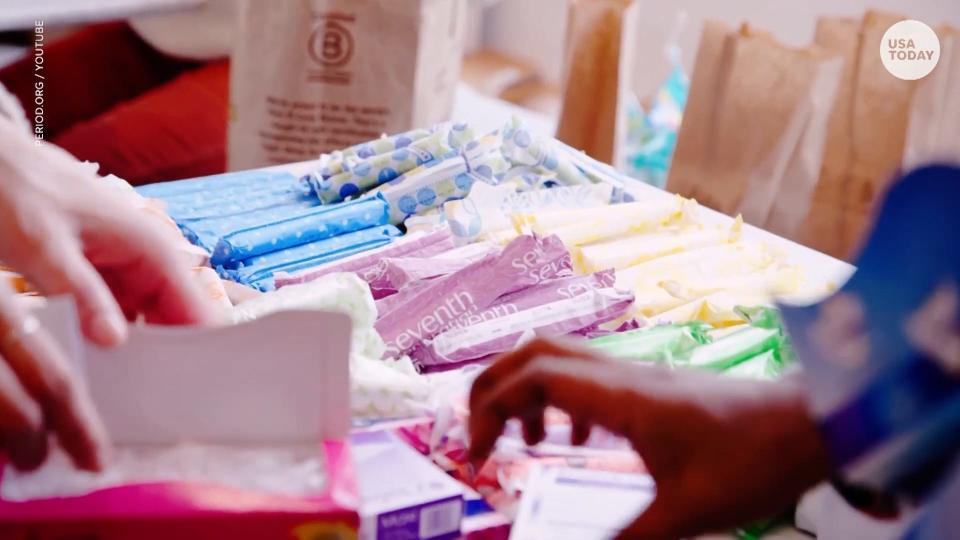Cheeto the dog is safe. Your recycling could put other animals at risk. | Letters to the Editor
Corporations are the problem, not the UAW
Another reader expressed consternation because UAW autoworkers are demanding higher pay, because he and others like him make less money, with few or no benefits. ("Pay, benefits at issue in UAW strike sound great to an hourly worker like me," Detroit Free Press, Oct. 11.)
He states, "There are tens of thousands of non-union hourly workers in Michigan who shall continue to report to work earning wages far less than what (UAW member) Mr. (Will) Lehman is dissatisfied with, and do it with full pride in their hearts, as they continue to fight the good fight for fair and equitable wages."
I say, then join a union. The problem is not that UAW workers are earning more than he is. The problem is that he and others are not earning fair wages.
The only reason that any of us earn fair wages, have a 40-hour work week, a weekend, vacations, benefits and a safer workplace, is because of unions.
Corporations have never been willing to voluntarily protect worker safety and wellbeing and pay a fair wage. It is only unions that have made this possible, and raised the standard of living for all workers, including non-union.Corporations are designed, and mandated by law, to increase profits for the shareholders. Corporations are powerful. Too powerful for one individual to oppose. It is absolutely necessary to have strong and progressive unions to protect and advance workers' rights for all of us.
The comparison that should be made is not between the autoworkers and non-union workers, but between the autoworkers and corporate leaders. CEO Mary Barra's yearly salary is $29 million, with a 34% increase over the last four years. How is that justifiable? The company wants to hold down worker wages, and keep a two-tiered system for paying some workers even less. How is that fair when leaders in corporations are making millions?
As a lifelong worker, now retired, who has never earned as much as an autoworker, I say all power to unionized labor. It is only because of unions that Americans on the whole have a higher standard of living than we did before organized labor. We all have benefited from what unions achieved through hard fought battles. I'm not envious of union wages. I'm grateful to unions for what they achieved.
Anne E. Snudden
Bruce Crossing, Mich.

Which side are you on in UAW strike? Submit a letter to the editor at freep.com/letters
My wife is a nurse. UAW shouldn't complain
I must agree with Mr. Hreha ("Pay, benefits at issue in UAW strike sound great to an hourly worker like me," Detroit Free Press, Oct. 11.) about the UAW and their $32 an hour wages. My wife is an RN. She feeds you, wipes your butt when you soil yourself, gives you your medication so you can get well. And she get a whole $22 an hour for that.
It must be very stressful to put nut A on bolt B. So to the UAW members, join the real world. Face it, you're overpaid and underworked.
Francis Straley
Florence, Ore.
I hope my dad was doing the polka in heaven
Imagine how delighted I was to see an uplifting happy story on the front page of my Sunday Detroit Free Press ("Upper Peninsula lodge holds Michigan's last weekly polka," Detroit Free Press, Oct. 8.) Such a heartwarming tale of people simply having fun together. My Polish father, Barney Jaszek, was probably doing the polka in heaven as I read it. I am certain that my Irish mother, Margaret Mary, aka Toosie, was doing the Irish jig alongside my dad. Thank you for starting our Sunday with joy.
Mary Ann Jaszek Pfeifer Burger
Garden City

Love polka? Submit a letter to the editor about polka or anything else that's on your mind at freep.com/letters.
Cheeto is safe, but we should all mind our recycling
Bravo to Cheeto the dog and his compassionate rescuers, who swiftly and skillfully removed the plastic container from his head in time for a happy ending. ("Shelter seeking family for Cheeto, a dog rescued from a plastic container of cheese balls," Detroit Free Press, Oct. 10.)
For many other animals who find themselves in a similar situation, help never comes. They are left to suffer alone, dehydration and starvation claiming most in a terrifying, painful, preventable death.
Cheeto’s unfortunate ordeal serves as a reminder of the importance of proper garbage and recycling disposal. This includes snipping the plastic rings from soda and beer cans, rinsing containers thoroughly, crushing aluminum cans, replacing caps on glass and plastic containers (like the one Cheeto got stuck in), and cutting the handles on grocery and gift bags. Tape and the sticky parts of envelopes can act as glue traps and should be discarded with care.
It only takes a minute to safeguard other animals from getting stuck — literally — in such a predicament.
Melissa Rae Sanger
Brighton

Put period products in Michigan schools
Anyone who has had a period knows that sinking feeling in the pit of your stomach when you don’t have the products you need when you need them. Being a teen is already hard enough, but lack of menstrual products shouldn’t add to that stress.
According to the State of the Period 2023 Study, nearly one in four students in the U.S. have experienced period poverty — the limited or inadequate access to menstrual products or menstrual health education. Additionally, 40% of teens have worn period products longer than recommended.
Stigmatization, lack of education, and excess taxation aside — not having menstrual products readily available in a school setting, regardless if one can afford them or not, interrupts students’ ability to learn.
The solution? Make period products as available as toilet paper in school restrooms. Only 25 states and Washington D.C. have passed legislation to help students have free access to period products.
We’re calling on Michigan state legislators to address period poverty for students by passing legislation that requires menstrual products be free and accessible in our schools.
Lysne K. Tait
Lansing

Submit a letter to the editor at freep.com/letters.
This article originally appeared on Detroit Free Press: UAW, Cheeto the dog, period products in Michigan schools | Letters

